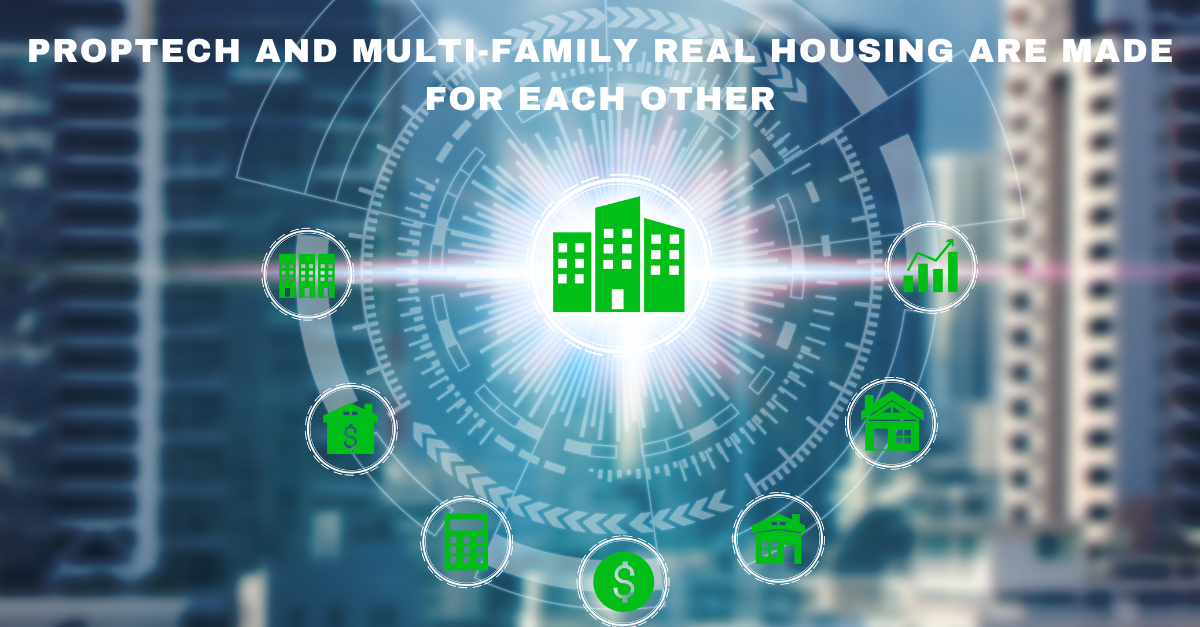PropTech and multi-family real housing are made for each other
Multi-family housing is a complex business — there is much to keep track of and a lot that needs to function like clockwork. It is unnatural, therefore, that this residential segment continues to largely operate with legacy tools and systems. Somehow, old school property managers are still not qualifying multi-family housing for technology adoption. This set-in-stone approach needs to change, and fast.
Fortunately, however, green shoots of proptech are being helmed by some forward-thinking owners and operators in multi-family housing projects. In doing so, they are unlocking value that was previously considered unachievable in multi-family housing due to the presence of a large number of circuits, HVAC units, lighting, and conveyor systems. Interestingly, COVID-19 has had a role to play in the acceleration of the adoption of proptech.
Before the pandemic, property managers were already looking at smart thermostats, touchless door locks, virtual tours, and paperless payments and leasing. But the pandemic transformed these options into necessities as consumers demanded safe, touchless, and remote access to services and amenities. It would not be wrong to say that COVID-19 supercharged technology adoption in the multi-family housing segment. Many functions that were earlier handled physically and required human-in-the-loop solutions are now getting automated. The results are such that the use of proptech has now become a vital part of providing seamless, high-quality building services. So, what to expect at this inflection point?
To the future
The very concept of multi-family technology is changing, with owners, operators and builders looking to automate more and more to make several touchpoints “smart”. The incorporation of cutting-edge proptech starts right from the time a prospective buyer exhibits interest in a multi-family dwelling. For instance, viewing and touring a property does not necessarily entail fixing physical appointments and driving to its location. Some buyers want to circumvent the hassle of dealing with multiple hard-selling agents, preferring instead to narrow down their searches online first.
Properties can now be viewed and toured virtually, or in a no- to low-contact setting, with digital communication obviating the need for physical contact. But that’s not all — even after a purchase has been made, consumers will expect a proptech-enabled smart dwelling unit. So, the incorporation of tech has to be perceived as an all-encompassing necessity, covering as many facets of multi-family housing as possible.
While many multi-family housing operators are new to the optimal level of proptech adoption, and there are bound to be teething problems, multiple developments are underway to ensure their simplicity and ease of access. The most important value proposition is that proptech will drive outcomes that far supersede the ones achievable in legacy systems.
The definite eventuality
With proptech becoming more and more popular, the multi-family housing sector is bound to undergo a measurable change, paving the way to a more experience-centric approach, benefitting management and residents alike. From the prospective owner/tenant’s point of view, new-age tech makes the touring and leasing process easier and more convenient.
Prospective residents will no longer need to coordinate with a property manager and fix appointments for apartment viewing — they can do things on their time and at their own speed. Virtual and self-guided tours are a huge benefit that proptech provides, and even smaller operators can incorporate them into their business model. In fact, several proptech platforms now provide residents with the option to sign a lease virtually on the spot. Thereon, there are multiple positive outcomes that proptech promises, in terms of operational efficiencies, energy reduction, workflow optimization, etc.
To conclude, the adoption of proptech is not a fad or an option — it is key to meeting demand and staying ahead of the curve. Digital transformation is inevitable, and property dealers must not only accept this but also embrace it wholeheartedly. Consumers expect a high level of digital competence in property managers, and not having it could impact property desirability and, ultimately, the bottom line.




